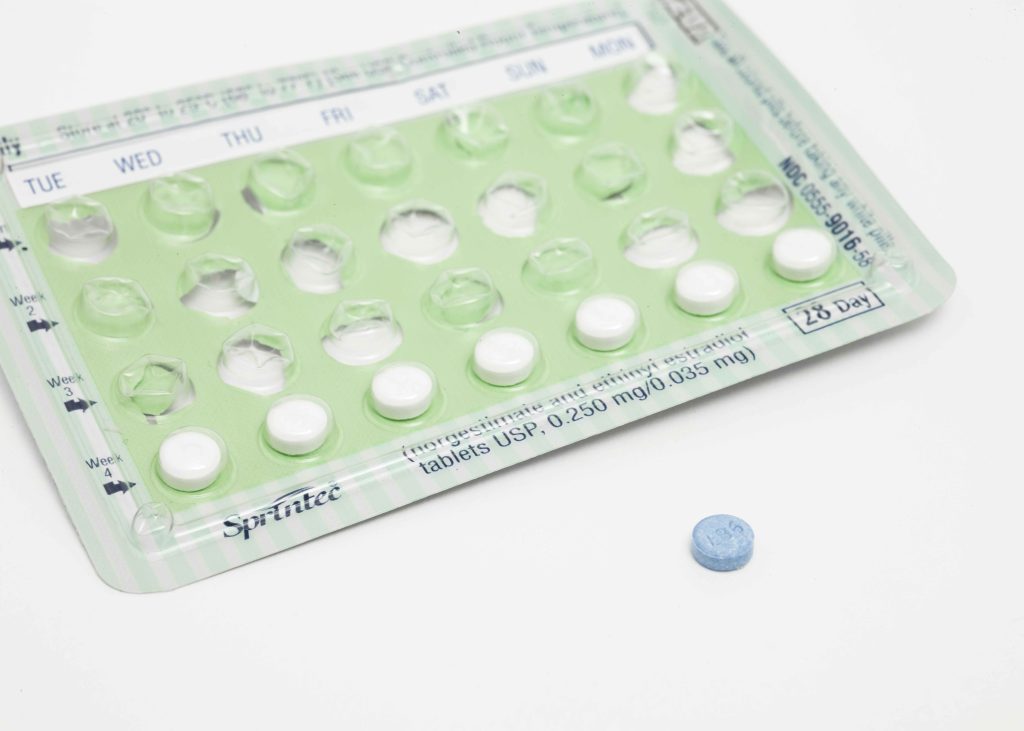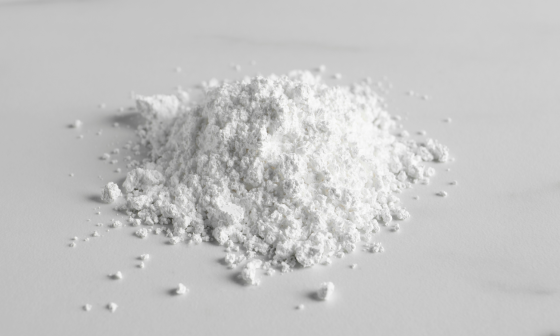Hair loss, medically known as alopecia, is a prevalent condition affecting millions worldwide. From gradual thinning to sudden shedding, hair loss is stressful—not to worry, we’ve got you covered. We’ll be delving into the intricate world of hair loss, exploring its various causes, supplement options, and the latest advancements in the field. Whether you’re a healthcare practitioner seeking to understand the science behind hair loss or someone personally navigating this journey, we’re glad you’re here!
Conditions that Cause Hair Loss
Stress
Stress, both acute and chronic, can have an impact on hair health. Chronic stress can trigger telogen effluvium, a type of hair loss characterized by excessive shedding of hairs in the telogen (resting) phase of the hair growth cycle. Stress-induced telogen effluvium typically occurs several months after the initial stressor and manifests as thinning hair rather than distinct bald patches. Stress not only depletes the body of its B vitamins, which play a significant role in the maintenance of healthy hair, but it can also disrupt gastrointestinal function and impair nutrient absorption. This means that even if you’re consuming foods rich in B vitamins, stress-related malabsorption may limit their bioavailability and efficacy in supporting hair health.

Hormonal Changes & Imbalances
Hormonal fluctuations and imbalances can significantly impact hair health. Estrogen and progesterone can both promote hair growth by prolonging the anagen (growth) phase of the hair cycle and increasing follicle size. When estrogen and progesterone levels drop, the relative dominance of androgens (ex. testosterone and androstenedione) may become more pronounced, leading to an imbalance of hormones and taking a toll on hair health and hair growth patterns. Menopause, PCOS and PMS are all conditions in which there is an androgen dominance.
Pregnancy
This is also why hair loss is so common after pregnancy. During pregnancy, the body produces more estrogen, which as we know now, can help protect hair and even support growth. This is why many people feel as though their hair is stronger, and healthier during pregnancy—that ‘pregnancy glow’ is all thanks to the extra estrogen. Following birth, there’s an abrupt decline in estrogen and progesterone levels triggering telogen effluvium. This shedding and thinning of hair typically occurs between two to six months postpartum and affects up to 50-60% of women.
Poor Nutrition and Diet
Poor diet and inadequate nutrition can also impact hair health and contribute to hair loss. Protein, iron, zinc, and other essential nutrients play a key role in supporting the growth and maintenance of healthy hair follicles. Inadequate intake of these nutrients can disrupt the hair growth cycle, leading to increased hair shedding, reduced hair density, and compromised hair quality.
Medications that Can Cause Hair Loss
Antidepressants
Although hair loss is not a common side effect of antidepressants, some SSRIs may trigger telogen effluvium. The exact reason for this is unclear, but it may be related to the impact of the medication on the hair growth cycle. Antidepressants can also influence hormone and nutrient levels in the body which can affect hair growth or contribute to hair loss. Some medications may interfere with the absorption of vitamins and minerals that are important for hair growth.
GLP-1 Agonists
GLP-1 agonists, a class of medications commonly used in the management of type 2 diabetes, have been associated with hair loss as a potential side effect. While the exact mechanism underlying GLP-1 agonist-induced hair loss is not fully understood, it is believed to be multifactorial. One proposed mechanism involves the modulation of hormonal pathways, particularly the inhibition of glucagon secretion and stimulation of insulin release, which may impact hair follicle function and growth. GLP-1 agonists have also been implicated in altering systemic metabolic processes, including glucose and lipid metabolism, which could indirectly influence hair health.

Birth Control
Like antidepressants, birth control pills may cause telogen effluvium. Hormonal changes caused by contraceptives can push a higher percentage of follicles into the telogen phase, leading to hair thinning. Some birth control pills contain androgenic progestins, which have similar properties to male hormones (androgens). Androgens can influence hair growth patterns, and certain individuals may be more sensitive to these hormonal changes.
Accutane
Isotretinoin, also known by its brand name Accutane, is a medication prescribed to treat severe acne. Isotretinoin can affect the production and activity of hormones, including those related to the skin’s sebaceous (oil) glands. These changes or fluctuations in hormone levels can contribute to hair loss in some individuals. It may also affect nutrient absorption and metabolism. Nutrients like vitamin A, which is related to isotretinoin’s mechanism of action, play a role in hair health and if disrupted, can potentially contribute to hair loss.
Supplements to Support Hair
Biotin (Vitamin B7)
Biotin is believed to play a role in the production of keratin, a protein that forms the structural foundation of hair, skin, and nails. Keratin is crucial for maintaining the strength and integrity of hair strands. It may also contribute to cell proliferation, which is essential for hair follicles. This can lead to an increased number of hair follicles and, consequently, support hair growth. Its involvement in fatty acid synthesis is important for the production of sebum—the natural oil produced by the sebaceous glands in the scalp—which helps keep hair moisturized.
Saw Palmetto
Saw Palmetto, also known as Serenoa repens, has many modes of anti-inflammatory and antioxidant action. It has been shown to lessen the conversion of testosterone into dihydrotestosterone (DHT), in which increased levels of DHT are connected to hair loss. Saw palmetto acts as a competitive, non-selective inhibitor of 5-alpha reductase, which may play a role in hormone-related hair loss. Studies have shown that Saw palmetto can help stabilize hair loss and promote regrowth.
Vitamin A
Vitamin A helps regulate sebum production on the scalp, which keeps hair moisturized and prevents breakage. It also regulates the production of keratin, the protein that makes up hair strands. Vitamin A acts as an antioxidant, which can protect hair follicles from damage caused by free radicals. Vitamin A can promote scalp health by stimulating cell turnover and maintaining the scalp’s integrity.
Omega 3 Fatty Acids
Omega-3 fatty acids, a type of polyunsaturated fat, are essential for maintaining healthy hair and scalp. These fatty acids play a crucial role in promoting scalp health by reducing inflammation and improving blood circulation to the hair follicles, which can enhance nutrient delivery and support optimal hair growth. Omega-3 fatty acids also contribute to the production of natural oils in the scalp, which can help to moisturize the hair and prevent dryness and breakage.
Vitamin E
Vitamin E, a powerful antioxidant, plays a crucial role in maintaining healthy hair and scalp. Its antioxidant properties can help protect hair follicles from oxidative stress caused by free radicals, which can damage the hair structure and lead to hair loss. It can support scalp circulation by promoting blood flow to the hair follicles, which enhances nutrient delivery and supports optimal hair growth. Vitamin E can also help maintain a healthy scalp environment by moisturizing and nourishing the skin, reducing dryness and flakiness that can contribute to hair breakage and loss.

Zinc
Zinc is an essential mineral that plays a role in numerous body processes—DNA synthesis, cell division, and protein synthesis, all of which are critical for maintaining healthy hair follicles and promoting hair growth. Zinc can help regulate hormone levels supporting hormone-related hair loss. Adequate levels of zinc in the body can help boost the production of keratin, the protein that makes up the hair shaft, which can promote hair strands that are strong and resilient. Zinc can also support sebum production, contributing to the maintenance of a healthy scalp, and preventing dryness and flakiness. Zinc deficiency has been associated with hair loss conditions such as telogen effluvium and alopecia areata.
Selenium
Selenium is a trace mineral that plays many roles in the body. One of its many functions includes contributing to thyroid hormone metabolism, and optimal thyroid function is important for healthy hair growth. Selenium can also help regulate the immune system and may play a role in reducing inflammation in the scalp, which can contribute to conditions such as dandruff and seborrheic dermatitis.
L-Cystine
L-cystine, a naturally occurring amino acid, is one of the two amino acids that make up the protein keratin. L-cystine contributes to the formation of disulfide bonds within the keratin protein, which can provide strength and stability to the hair shaft. These bonds help to maintain the integrity of the hair fibre, preventing breakage and promoting hair resilience.
Research
Do Hair Loss Supplements Work?
In a randomized, placebo-controlled, double-blind study assessing the ability of an oral supplement to increase hair growth in women with thinning hair showed that women who took the supplement had a significant increase in the number of thick, healthy hairs on their scalp compared to those who didn’t take it (placebo group). Specifically, after 90 days of taking the supplement, the women had more than double the number of terminal hairs (thick hairs) compared to the placebo group, and this improvement continued after 180 days. Additionally, the women who took the supplement reported improvements in overall hair volume, scalp coverage, hair thickness, shine, skin moisture, and smoothness. Importantly, no negative side effects were reported from taking the supplement. Overall, the study concluded that the oral supplement effectively and safely promotes significant hair growth in women experiencing temporary hair thinning.
PRP for Hair Loss
Platelet-rich plasma (PRP) is a new treatment option for hair loss, including conditions like male and female pattern baldness. It can be used on its own or alongside other treatments like medication or hair transplants. PRP is also seen as a safe and effective alternative to steroids for alopecia areata. Some studies suggest that PRP may help with certain types of scarring hair loss. However, more research is needed to figure out the best way to prepare PRP, how often it should be used, and the right dosage to get the best results.
It’s important to remember that each individual’s experience with hair loss is unique. While scientific advancements continue to offer promising solutions, navigating the journey of hair loss often requires patience and a personalized approach to care.







